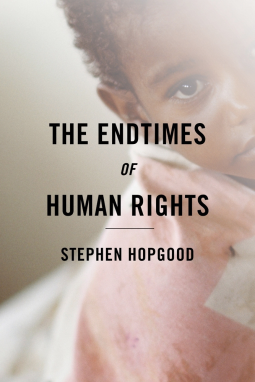
The Endtimes of Human Rights
by Stephen Hopgood
This title was previously available on NetGalley and is now archived.
Send NetGalley books directly to your Kindle or Kindle app
1
To read on a Kindle or Kindle app, please add kindle@netgalley.com as an approved email address to receive files in your Amazon account. Click here for step-by-step instructions.
2
Also find your Kindle email address within your Amazon account, and enter it here.
Pub Date Nov 18 2013 | Archive Date Oct 15 2013
Description
"We are living through the endtimes of the civilizing mission. The ineffectual International Criminal Court and its disastrous first prosecutor, Luis Moreno-Ocampo, along with the failure in Syria of the Responsibility to Protect are the latest pieces of evidence not of transient misfortunes but of fatal structural defects in international humanism. Whether it is the increase in deadly attacks on aid workers, the torture and 'disappearing' of al-Qaeda suspects by American officials, the flouting of international law by states such as Sri Lanka and Sudan, or the shambles of the Khmer Rouge tribunal in Phnom Penh, the prospect of one world under secular human rights law is receding. What seemed like a dawn is in fact a sunset. The foundations of universal liberal norms and global governance are crumbling."—from The Endtimes of Human RightsIn a book that is at once passionate and provocative, Stephen Hopgood argues, against the conventional wisdom, that the idea of universal human rights has become not only ill adapted to current realities but also overambitious and unresponsive. A shift in the global balance of power away from the United States further undermines the foundations on which the global human rights regime is based. American decline exposes the contradictions, hypocrisies and weaknesses behind the attempt to enforce this regime around the world and opens the way for resurgent religious and sovereign actors to challenge human rights.Historically, Hopgood writes, universal humanist norms inspired a sense of secular religiosity among the new middle classes of a rapidly modernizing Europe. Human rights were the product of a particular worldview (Western European and Christian) and specific historical moments (humanitarianism in the nineteenth century, the aftermath of the Holocaust). They were an antidote to a troubling contradiction—the coexistence of a belief in progress with horrifying violence and growing inequality. The obsolescence of that founding purpose in the modern globalized world has, Hopgood asserts, transformed the institutions created to perform it, such as the International Committee of the Red Cross and recently the International Criminal Court, into self-perpetuating structures of intermittent power and authority that mask their lack of democratic legitimacy and systematic ineffectiveness. At their best, they provide relief in extraordinary situations of great distress; otherwise they are serving up a mixture of false hope and unaccountability sustained by "human rights" as a global brand.The Endtimes of Human Rights is sure to be controversial. Hopgood makes a plea for a new understanding of where hope lies for human rights, a plea that mourns the promise but rejects the reality of universalism in favor of a less predictable encounter with the diverse realities of today's multipolar world.
Advance Praise
“The Endtimes of Human Rights is one of those books that will grab the reader's attention from the first page to the last. At the heart of this stimulating and arresting indictment of Human Rights as a movement consisting of believers, institutions, discourses, and ideologies. Stephen Hopgood asserts with sophistication and wit that it was virtually inevitable that Human Rights was founded on something of a false promise, that it was nearly inevitable that it would become 'corrupted' and twisted because of its own internal contradictions, that this corruption has led to its demise, and the consequence will be the end of the last of the great ideologies of the West. Some will object furiously to Hopgood's argument. Others will feel elightened and grateful by his bold argument. But all will be provoked, and it will be impossible to think about international human rights in the same way.”—Michael Barnett, George Washington University, author of Empire of Humanity: A History of Humanitarianism
Available Editions
| EDITION | Other Format |
| ISBN | 9780801452376 |
| PRICE | $27.95 (USD) |



